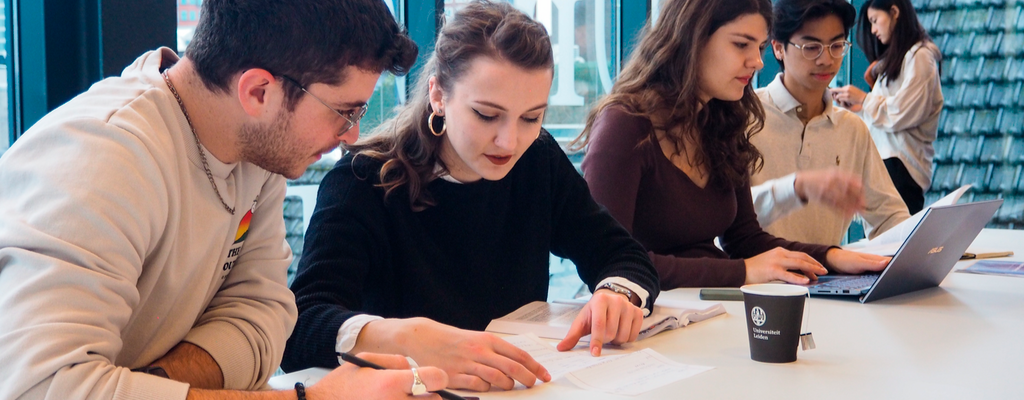A strong start with Humanities
A Humanities degree gives you a solid start on the job market, as shown by the employment survey among alumni who graduated from 2020 through 2024.
On average, 62% of our master’s alumni found a job within two months of graduating. Within six months, 85% were employed.
Over two-thirds of alumni are satisfied or very satisfied with the development of their careers. The higher the level of the job, the more satisfied alumni tend to be.
For 62%, the first job was exactly the one they wanted. For those whose first job wasn’t their ideal role, financial security was often the main reason for accepting it. Other reasons included: not being able to find a position within their own field, gaining additional work experience, or the role also being interesting or challenging.
A master’s pays off
For 77% of master’s alumni, their first job was immediately at academic or higher professional education (Dutch hbo) level. Among alumni who entered the job market straight after completing their bachelor’s degree, this was 63%. Continuing with a master’s after your bachelor’s clearly strengthens your position on the job market.
10% of master’s alumni completed a research master’s. These graduates find jobs even faster and are more likely (24%) to pursue a PhD than other master’s alumni (5%). Alumni with two master’s degrees also secure employment more quickly, entering the labour market at a higher level and earning more than those with one master’s degree.

Satisfied with study choice
After completing their bachelor’s, 70% of alumni chose to pursue a master’s degree. 13% of bachelor’s alumni found a job immediately after graduating, and 5% actively started applying. The remaining 12% opted for a work experience position, a gap year, or started a master’s programme later on.
The vast majority of graduates look back positively on their study choice. Of those who completed a Humanities programme at Leiden University, 73% would choose the same bachelor’s again, and 70% the same master’s.
Looking back, some alumni felt that certain elements were missing from their studies. They would have welcomed greater emphasis on practical experience, internships, specific professional skills and support in making the transition to the labour market. In addition, some indicated that guidance on how to apply their skills beyond their specific field of study, as well as more practical preparation, would have been valuable.
Finding the first job
An internship that turns into a first job, a great tip from a friend or family member, or a contact via social media: 51% of alumni find a job through their network. Online job listings help 38% of graduates land their first role.
Those who start looking early are more likely to be employed soon after graduation. Students who began their search six months or more before obtaining their degree were more likely to have a job immediately after graduating. One fifth of master’s alumni (21%) had already secured a job before graduating (this percentage is highest among alumni of Classics and Ancient Studies and of European Languages). Most others started actively looking for a job either within six months before graduation (24%) or immediately after graduating (28%). The later students started their search, the greater the chance of a period of unemployment.

Making the Right Choice
How did alumni know which role they wanted to pursue? In many cases, they didn’t have a clear idea beforehand. Over half (51%) say they ended up in their current position more or less by chance. For 20%, relevant work experience gained through part-time jobs helped them better understand which direction they wanted to take. Conversations with family and friends were cited by 19% as a key influence in their career choice, while 18% pointed to their internship during their studies as the main factor.

